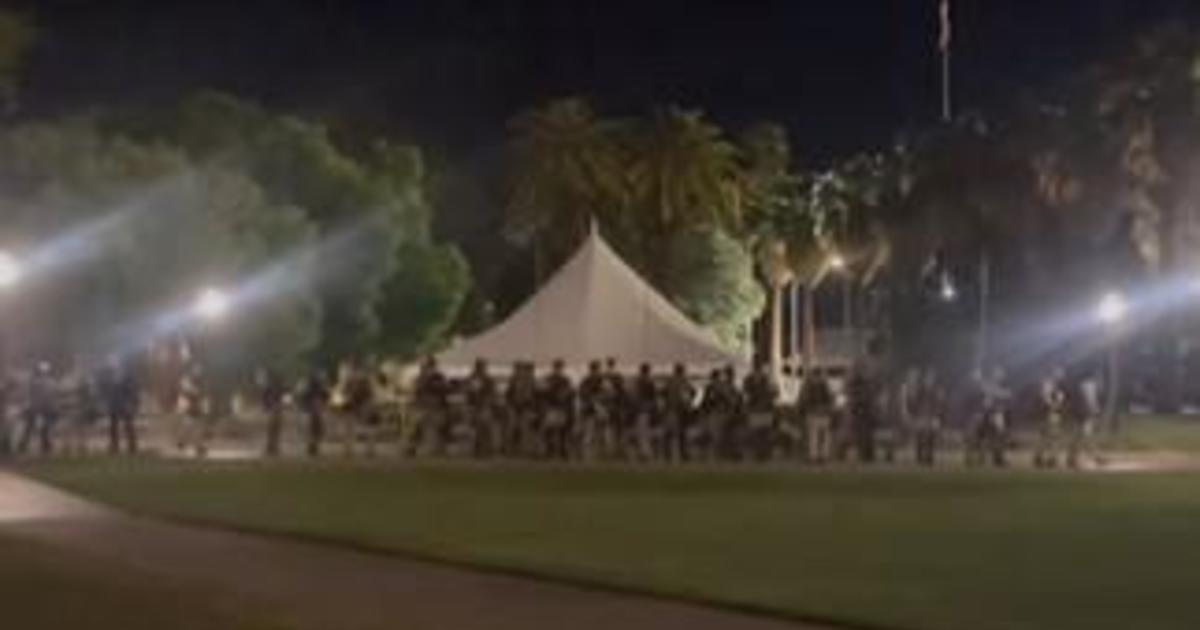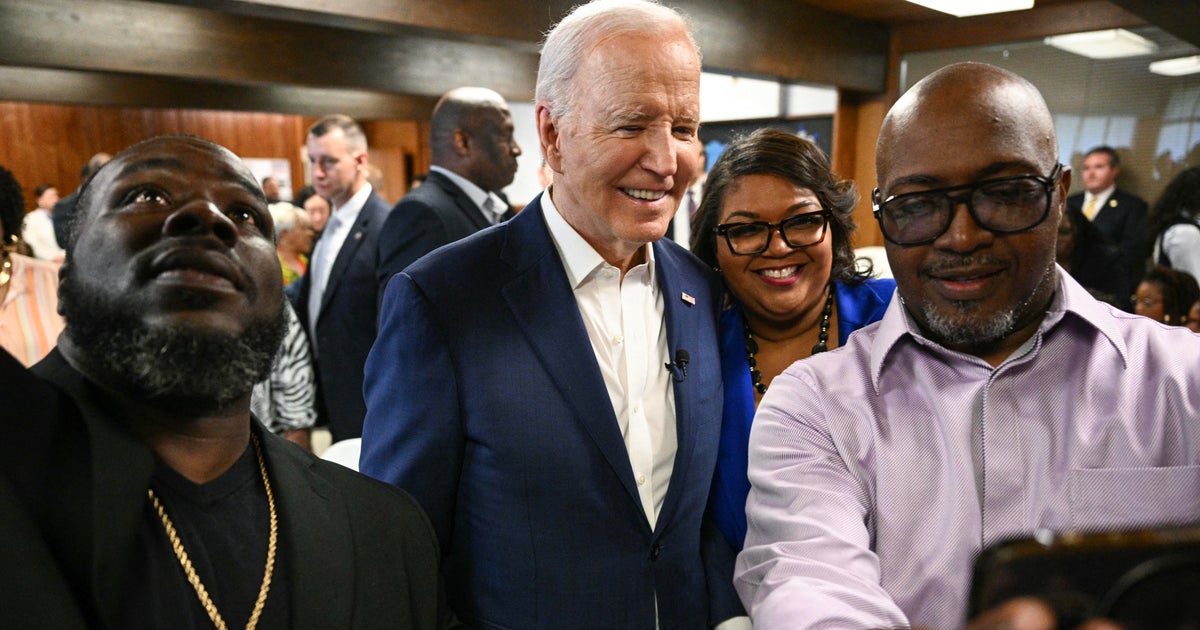Transcript: University of Chicago professor Robert Pape on "Face the Nation," August 13, 2023
The following is a transcript of an interview with University of Chicago professor Robert Pape that aired on "Face the Nation" on August 13, 2023.
MARGARET BRENNAN: Security has been stepped up in downtown Atlanta, ahead of possible charges that could be handed down against former President Trump this week. There is new research that support for political violence is on the rise, following Trump's numerous indictments to date. Robert Pape, a professor at the University of Chicago, joins us now with details.
ROBERT PAPE: Thank you, Margaret.
MARGARET BRENNAN: And I know you've been tracking this really troubling trend in American politics for a while here. And the survey you did in June, on the second federal indictment of former President Trump after that point, what impact did you see? Is it feeding more anger, or is it just sort of baked in?
PAPE: What we're seeing is the country as a whole on the edges, but now moving into the mainstream, is becoming much more angry, much more radicalized. And this is particularly happening just in the last three months. What is occurring, I study this not from the perspective of a political pollster who's ahead in a political horse race, but from 30 years of experience in studying political violence. And the biggest picture to take away from the survey of our dangers to democracy tracker, is that political support for- support for political violence is now breaching into the main strain. That's different. It's not just about Oathkeepers, proud boys, it is now breaching into the mainstream, and we're seeing the consequences of that in many ways in our society.
MARGARET BRENNAN: In looking at some of the research you've shared with us, one of the things that stood out you are seeing this radicalization on both sides of the political spectrum. 30 million people, according to your numbers, think the use of force is justified to prevent Donald Trump from being president. 18 million think it's justified to restore Trump to the presidency,
PAPE: Exactly. What we're seeing is not simply a manifestation on the right, that is absolutely important and there's no doubt that January 6, the crowd that sieged the Capitol, is something that has not happened on the left. So I'm not trying to draw that equivalence, but nonetheless, what we need to look at are the sentiments on both the right and the left that are being radicalized to millions and millions of Americans. And this is important because political- these sentiments are a bit like understanding wildfires, the first part of your show, it's the dry kindling, that is so important that we can measure in advance. We can't measure political- political scientists like myself, or meteorologists, a campfire that could set off that kindling or powerlines that could set off that kindling. What we can actually measure and see whether it's growing, shrinking are the sentiments for political violence in the country and those are growing. And it's important not because every one of those people is going to commit political violence, but because it helps to legitimate political violence, and it is the pool of people that ultimately do commit acts of political violence,
MARGARET BRENNAN: Which is your response to those who say, well, that's a small percentage, you're saying that could have huge ramifications.
PAPE: And we're seeing those ramifications in Utah, but Utah is not an exception to this–
MARGARET BRENNAN: You're talking about the 74-year-old man who was shot by the FBI when they were trying to serve a warrant to his home because he had been making threats online about President Biden.
PAPE: And what's important is not that we're just seeing the rise of online chatter in the last few years. So remember, we studied that with ISIS as well. What we're seeing now is the rise of determined threats by individuals. The man in Utah made threats online in March, was visited by law enforcement, and then did it again this time brandished a gun. Now that's a determined threat. If we look at the man who was arrested in front of Obama's home just the month before that, he was at January 6 breaking into the Capitol. Then he surveilled the area the day before and in a 17-minute video, then he comes back with guns and bombs. Brett Kavanaugh, attacker before that, the Pelosi attacker before that. These are determined- what we're seeing is determined individuals, not simply online chatter and our surveys, this tracker of dangers to democracy, help to give and inform the situational awareness and how it's changing in our country.
MARGARET BRENNAN: With the older man in Utah, this was online threat posting, but there are individuals around him who have said he wasn't necessarily a threat. So there's some probing of whether the- the political rhetoric matches actual intent and that will how do you measure that?
PAPE: That will be the case in every single instance of a specific individual. There's always psychosocial circumstances, there's always biographical constraints of being able to execute violence itself. Those will be- often vary and become unique to every single individual. It's not the one individual case, Margaret, it's this pattern that we're seeing now going back now years of determined- normally, FBI comes- law enforcement knocks on your door says, hey, we don't like this threat to the president, maybe you should knock that off. That often just goes away. That's not what happened in this case. What happened in this case is they ramped up, they got more aggressive as President Biden was about to come to Utah. So Biden is coming closer to him. It is not at all weird that then, I mean, just think of what had happened if something had gone wrong and the law enforcement had not gone and knocked on this man's door. We don't want to wait until we actually have to react after an event and so- but this isn't a lone wolf, this is not a lone case. What we're seeing is case, after case, after case of this and we should go back to January 6, where the crowd is chanting hang Mike Pence, building a gallows and not just sort of dismiss that as well, is that just chatter?
MARGARET BRENNAN: We're not and that's why we're going to continue following that. Thank you. That's it for this week. I'm Margaret Brennan.



